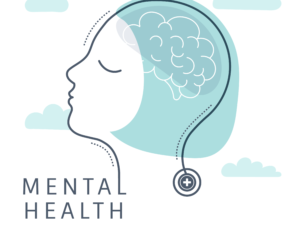 Unfortunately, there are a lot of misconceptions of mental disorders and all the while mental health awareness is lower than it should be. A shocking 1 in 5 Americans experience a mental health issue every year and yet many of those people who suffer, suffer alone. While there is little awareness on mental illnesses as well as the acceptance of it, many people are even afraid to reach out for help.
Unfortunately, there are a lot of misconceptions of mental disorders and all the while mental health awareness is lower than it should be. A shocking 1 in 5 Americans experience a mental health issue every year and yet many of those people who suffer, suffer alone. While there is little awareness on mental illnesses as well as the acceptance of it, many people are even afraid to reach out for help.
In some cases, people refuse to accept that they are suffering from a mental illness while others ignore it and worry that accepting it or diagnosing it would affect their lives too much. The majority of mental illness symptoms are controllable with the right treatment, which is why if you or a loved one is suffering any symptoms, you should seek the help you need.
Learning more about the common misconceptions of mental health could help you and your loved ones spread awareness and lift the stigma around these types of disorders.
#1 There is no scale when it comes to mental health
Just like physical illnesses and ailments, there is a scale when it comes to mental health as well. While someone can suffer from a cold and another from cancer, there are levels of severity when it comes to mental health as well. Some people experience an occasional emotional problem or several, and others suffer almost constantly. According to the U.S. Department of Health and Human Services, only around 17% of adults experience “optimal” mental health.
#2 Mental illnesses only affect adults
Often children are dismissed when they are suffering from symptoms of mental illness, while 1 in 5 children struggle with mental health. Around 70% of mental illnesses in adulthood actually began during adolescence. The most commons mental disorders that begin in childhood are:
- Depression
- Eating disorders
- Anxiety disorders
- OCD (obsessive compulsive disorder)
#3 It is the fault of the parents when children have mental health issues
Genetics and biology, environmental factors, or a combination is what causes mental health problems, and often they are unavoidable. While a mental illness can occur due solely to genetics or biology, they also can occur due to neglectful or abusive treatment via parents.
#4 Depression is just a mindset
Depression isn’t controllable via a decision to be sad or happy. Depression stems from brain chemistry or function and doesn’t have to do with a person being weak, lazy, or feeling sorry for themselves.
#5 People with mental illnesses are unintelligent
Intelligence is completely unrelated to mental illness. People who suffer can either be brilliant or dull-minded, but if a person suffers from a mental illness it does not deem them as unintelligent. While certain mental illnesses can affect certain aspects such as memory and social skills, it does not correlate with a lack of intelligence.
#6 People with mental illnesses don’t ever get better
While not all mental health problems are entirely curable, most of them are treatable, especially with the help of a trusted mental health counselor in Carrolton. According to the National Alliance on Mental Illness, 70 to 90% of those who undergo therapy and medication experience relief in symptoms. It is even possible for people to completely recover from certain mental health issues.
What you can do
It is important that our society becomes more aware of mental health and work together to lift the stigma around it. If you or a loved one is suffering from mental health symptoms, don’t lose hope or become discouraged. Take a step in the right direction to bettering yourself and your life by reaching out for help.
Here at Lifeworks, we are trusted and experienced Carrolton therapy center that can help. Our team knows and understands mental health and will take the steps with you in order to treat it. If you have any questions or would like to schedule an appointment, please contact us today.




